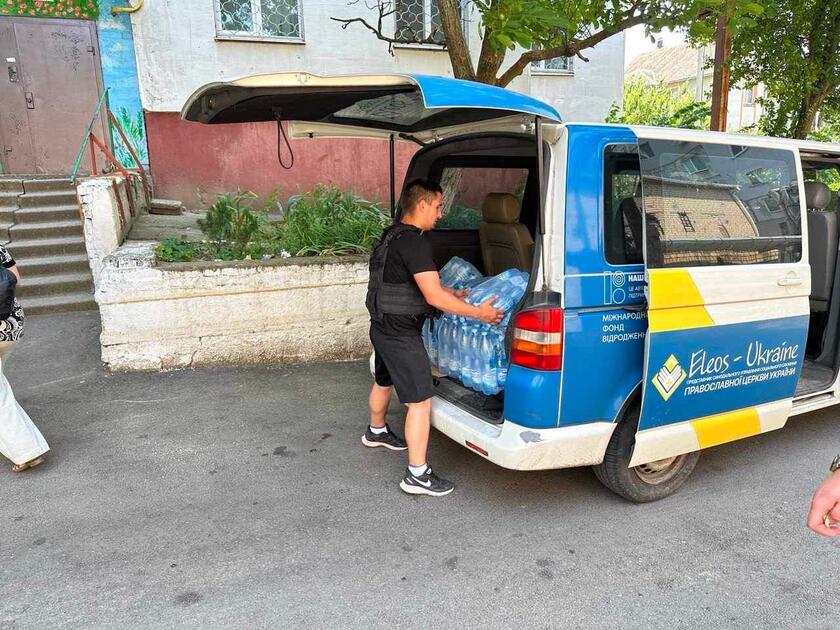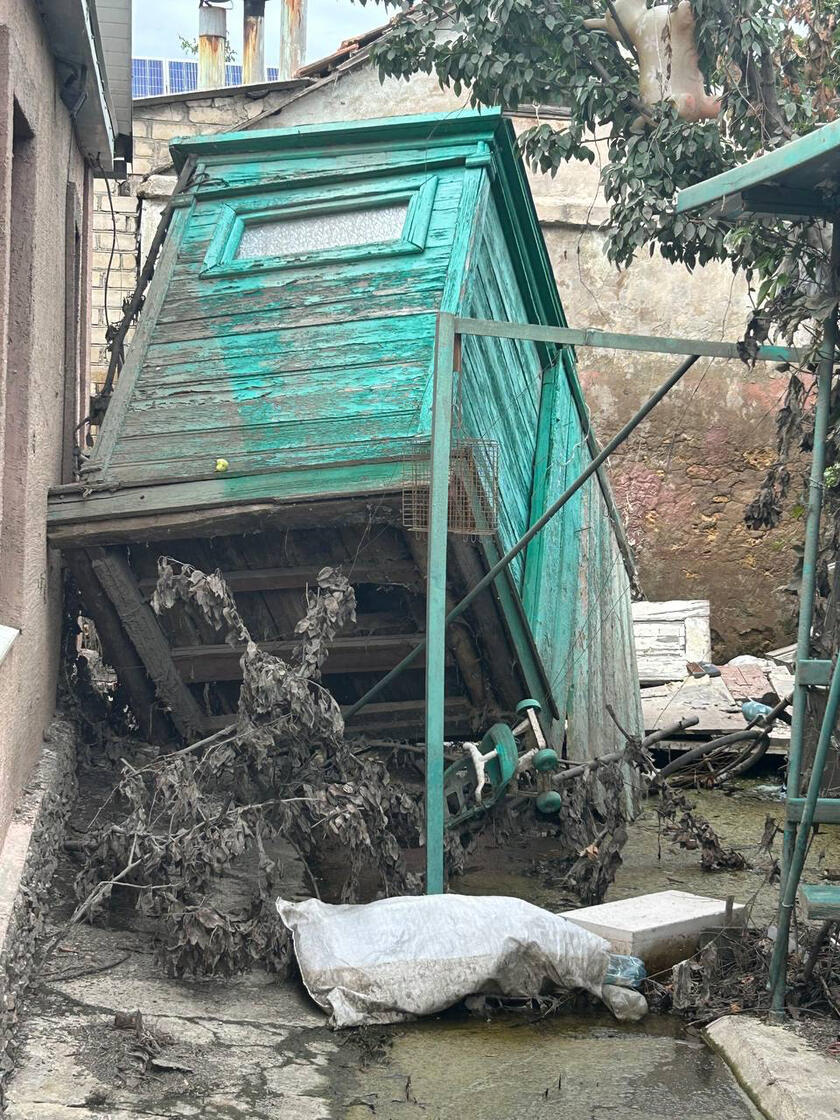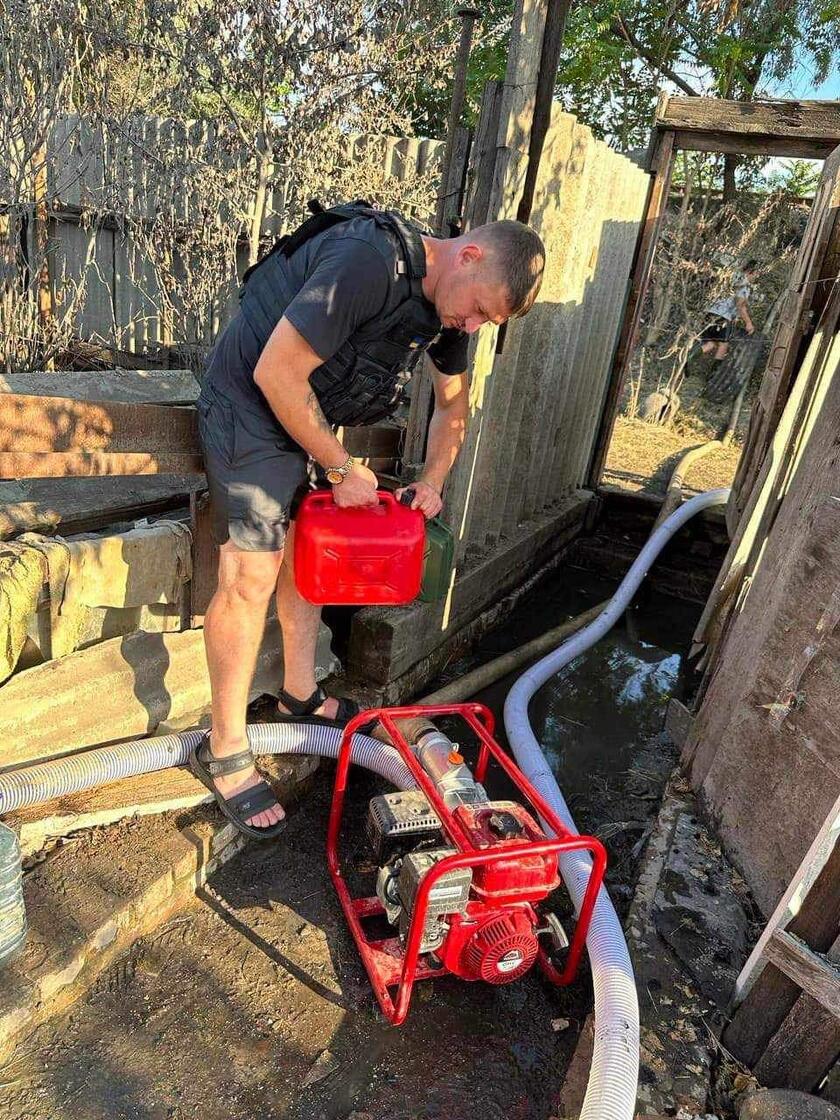Ukraine: Humanitarian situation worsens after dam explosion

Emergency aid with water and food needed for a long time. Johanniter supports with clean-up efforts and daily supplies.
On 6 June, parts of the Kachowka Dam in Ukraine exploded. Millions of litres of water poured over the regions along the Dnipro River in the south-east of the country. Four weeks later, most of the water has seeped away and the full extent of the damage is becoming visible. “Destroyed houses, fields and businesses everywhere. Not a single house in the flooded areas has been spared. The humanitarian situation is worsening enormously as a result,” reports Olena Tanasiіchuk from the Johanniter partner organisation ELEOS. “People have lost their jobs and all their belongings. They can hardly rebuild them in the ongoing war situation. Tens of thousands of people will continue to depend on help with everyday relief goods for a very long time,” she warns.

After all, the areas affected by the floods and water shortages were Ukraine's granary and thus also important for food supplies worldwide. Thousands had jobs here as farmers or in processing and shipping the harvest. These jobs will be irretrievably lost for years. Wells, rivers and groundwater are contaminated. The remaining water in the reservoir is not enough to supply metropolises and agriculture in the long term. Laying new water pipes will be a mammoth task.
In addition, people have lost all their household items and can no longer even prepare a meal. “Washing machine, cooker, refrigerator, dishes, a bed or table, everything was destroyed by the water,” says Tanasiіchuk, project coordinator at ELEOS.
Together with their partners NEW DAWN and ELEOS, Johanniter has evacuated hundreds of people in the Kherson and Mykolaev regions over the past four weeks and accommodated them in safer regions, as well as distributing relief goods for daily needs to thousands of those who remained. Camp beds, food, hygiene items, clothing and crockery were procured, toilets were set up. The distributed shovels, household cleaners and anti-mould agents help to clean the houses from mud, sand and other contaminants. Volunteers go from house to house pumping the remaining dirty water out of basements and living spaces.
Tackling the water crisis

The biggest problem at the moment is the supply of clean water. Therefore, Johanniter partners have distributed more than one million litres of drinking water in water tanks or water bottles in the last four weeks. Water filters also help to make polluted water usable again for washing and cooking. “We warn people not to drink the contaminated water. There have already been infections and diarrhoeal diseases,” says Tanasiichuk. Johanniter and ELEOS have therefore provided two hospitals in Kherson with medicines to treat diarrhoeal diseases and skin infections.
“In addition to providing acute aid, our partners have also started to ensure a longer-term water supply for the population,” says Florian Beck, Johanniter Programme Officer for Ukraine. “First well drillings in depths that were not contaminated by the polluted water could be successfully carried out.”
Johanniter in Ukraine
Johanniter has been active in Ukraine since the beginning of the war. They help refugees, displaced persons, those who have stayed and returnees, especially in the east and southeast of Ukraine. Together with partners in 100 towns and villages across the country, around 30,000 people are supported with food and hygiene items every month.